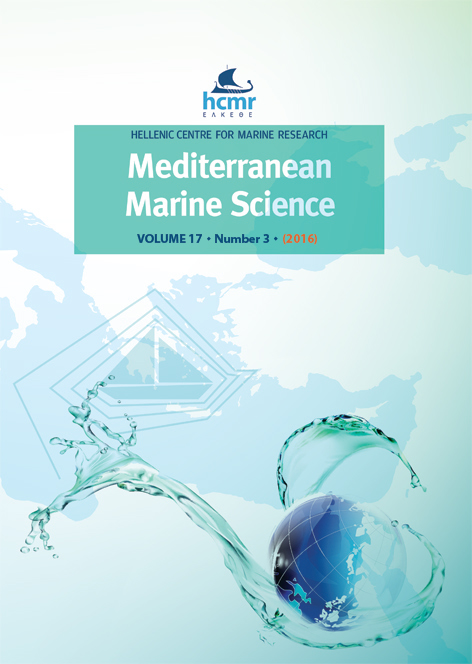Suitability of artisanal fishery discards as feed for juvenile tub gurnard (Chelidonichthys lucerna L.) reared in sea bottom cages in the mid Adriatic Sea
Аннотация
The suitability of using discards from artisanal fisheries as feed for wild-caught Chelidonichthys lucerna (L.) reared in submerged cages in the Adriatic Sea was investigated. Three-hundred juvenile tub gurnard (72.9 ± 11 g, 18 ± 1 cm) were captured and separated into four circular 35.3 m3 submerged cages. Two stocking densities were used: two cages contained 60 fish each (1.7 fish m-3; CG-L) and two cages contained 90 fish each (2.55 fish m-3; CG-H). Growth performance and survival rates were recorded over a 240 day period during which tub gurnard were fed with a variety non-target fishery discards, including common crab, sardine, Atlantic chub mackerel, anchovy, and salema. The survival rate was approximately 90% in both groups (CG-L = 91% and CG-H = 90%), with final stocking densities of 0.32 kg m-3 and 0.49 kg m-3 for the CG-L and CG-H groups, respectively. There were no significant differences in final mean body weight or length between the CG-L group (206 ± 23 g, 24.6 ± 2 cm) and the CG-H group (215.5 ± 32 g, 24.8 ± 2 cm). The condition index was similar between the two groups (1.38 and 1.42 for CG-L and CG-H, respectively). The feed conversion ratio was high in both the CG-H (2.39) and CG-L (2.32) cages. These results demonstrate that viable growth rates of tub gurnard may be obtained by feeding recycled fishery discards and rearing in cages placed on the seabed, which allows for the natural benthic behavior of this species.
Article Details
- Как цитировать
-
RONCARATI, A., MARIOTTI, F., FELICI, A., MELIGRANA, M., & MELOTTI, P. (2016). Suitability of artisanal fishery discards as feed for juvenile tub gurnard (Chelidonichthys lucerna L.) reared in sea bottom cages in the mid Adriatic Sea. Mediterranean Marine Science, 17(3), 644–650. https://doi.org/10.12681/mms.1750
- Выпуск
- Том 17 № 3 (2016)
- Раздел
- Research Article
Authors who publish with this journal agree to the following terms:
- Authors retain copyright and grant the journal right of first publication with the work simultaneously licensed under a Creative Commons Attribution Non-Commercial License that allows others to share the work with an acknowledgement of the work's authorship and initial publication in this journal.
- Authors are able to enter into separate, additional contractual arrangements for the non-exclusive distribution of the journal's published version of the work (e.g. post it to an institutional repository or publish it in a book), with an acknowledgement of its initial publication in this journal.
- Authors are permitted and encouraged to post their work online (preferably in institutional repositories or on their website) prior to and during the submission process, as it can lead to productive exchanges, as well as earlier and greater citation of published work (See The Effect of Open Access).





